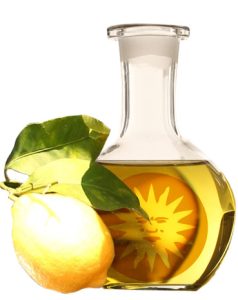Lemon Essential Oil (Citrus limonum)
At Esencias Lorente, we are pleased to introduce our lemon essence, a versatile and refreshing ingredient used in a wide range of industrial applications. Experience the best of lemon, carefully extracted from the zest of fresh lemons through a cold-pressing process to preserve its natural properties and its fresh, citrusy aroma. Our lemon essence is cherished for its revitalizing scent and its characteristic tart flavor, which adds a touch of freshness to a variety of products, from beverages and foods to cleaning and personal care products.
At Esencias Lorente, we are committed to providing you with the purest and most authentic lemon essence, produced to meet the most demanding needs of our customers. Trust us to enhance the quality and flavor of your products with our premium lemon essence. Additionally, we are proud to have recognized quality certifications, such as the ECO CERT certification, which endorse our commitment to excellence and sustainability at every step of our production process.
Description: Liquid yellow essential oil with a characteristic citrus smell.
Bloom: This fruit is cultivated and it grows in spring.
Growth: It has mainly an industrial use in Murcia.
Composition: This essence is mainly composed by Beta-Pinene, D-Limonene and Gamma-Terpenine.
Use: It is mostly used in perfumery and food and in a lesser extent in aromatherapy.
TECHNICAL TABLE OF LEMON ESSENTIAL OIL
ORGANOLEPTIC INFORMATION
PHYSICO-CHEMICAL INFORMATION
CHEMICAL COMPOSITION (Active Ingredients)
The essential oil of lemon (Citrus limonum) is extracted from the peel of lemons and is known for its refreshing citrus aroma and therapeutic properties. Some of the main chemical components present in lemon essential oil are:
- Limonene: The main component and responsible for the distinctive citrus aroma of lemon essential oil. It has stimulating and antioxidant properties.
- Beta-pinene: Contributes to the aroma and may have antimicrobial properties.
- Alpha-pinene: Similar to beta-pinene, contributes to the fresh aroma and may have antimicrobial properties.
- Linalool: Present in smaller amounts, may have relaxing and anti-inflammatory properties.
- Citral: A compound that adds to the citrus aroma and may have antibacterial and antifungal properties.
- Geraniol: Another component that may have antiseptic and aromatic properties.
- Linalyl acetate: Contributes to the aroma and may have calming properties.
These components, among others, are found in lemon essential oil and provide its distinctive aroma and potential health benefits. It’s important to note that the concentration and presence of each component can vary depending on the lemon variety, cultivation conditions, geographical region, and method of extraction of the essential oil. Lemon essential oil is commonly used in aromatherapy, skin care, home cleaning, and more, due to its pleasant aroma and beneficial properties.
Description of Lemon (Citrus limonum)
Lemon (Citrus limonum) is a citrus fruit native to Asia, belonging to the Rutaceae family. It is known for its acidic and refreshing taste, as well as its versatility in cooking and its various uses in medicinal and personal care applications.
The lemon is an oval fruit with a bright yellow, rough peel. Its pulp is juicy, acidic, and contains numerous seeds. It is a highly versatile fruit, used both in its fresh form and in juices, dressings, desserts, sauces, and as a flavoring in a variety of dishes.
Uses and Benefits of Lemon (Citrus limonum):
- Source of Vitamin C: Lemon is known for its high vitamin C content, which is essential for the immune system, skin health, and iron absorption.
- Culinary: Used in cooking to add flavor and acidity to a variety of dishes. Its juice and zest are used in the preparation of beverages, dressings, marinades, desserts, and as an addition to teas and flavored waters.
- Health Benefits: Consuming lemon or its juice is believed to aid digestion, provide antioxidants that combat free radicals, and promote hydration by being a source of water and electrolytes.
- Personal Care: Lemons are used in personal care products, such as mouthwashes, homemade shampoos, facial masks, and nail treatments, due to their antibacterial and astringent properties.
- Home Cleaning: Lemon juice is used as a natural cleaner to disinfect surfaces and remove stains, thanks to its antimicrobial action and properties to dissolve fats.
Lemon is a highly valued fruit for its distinctive taste and its multiple uses in cooking, health, and personal care. Its versatility and nutritional content make it a key ingredient in numerous culinary cultures and wellness applications. However, excessive consumption can cause dental issues due to its acidity, so it is recommended to consume it in moderation and as part of a balanced diet.
